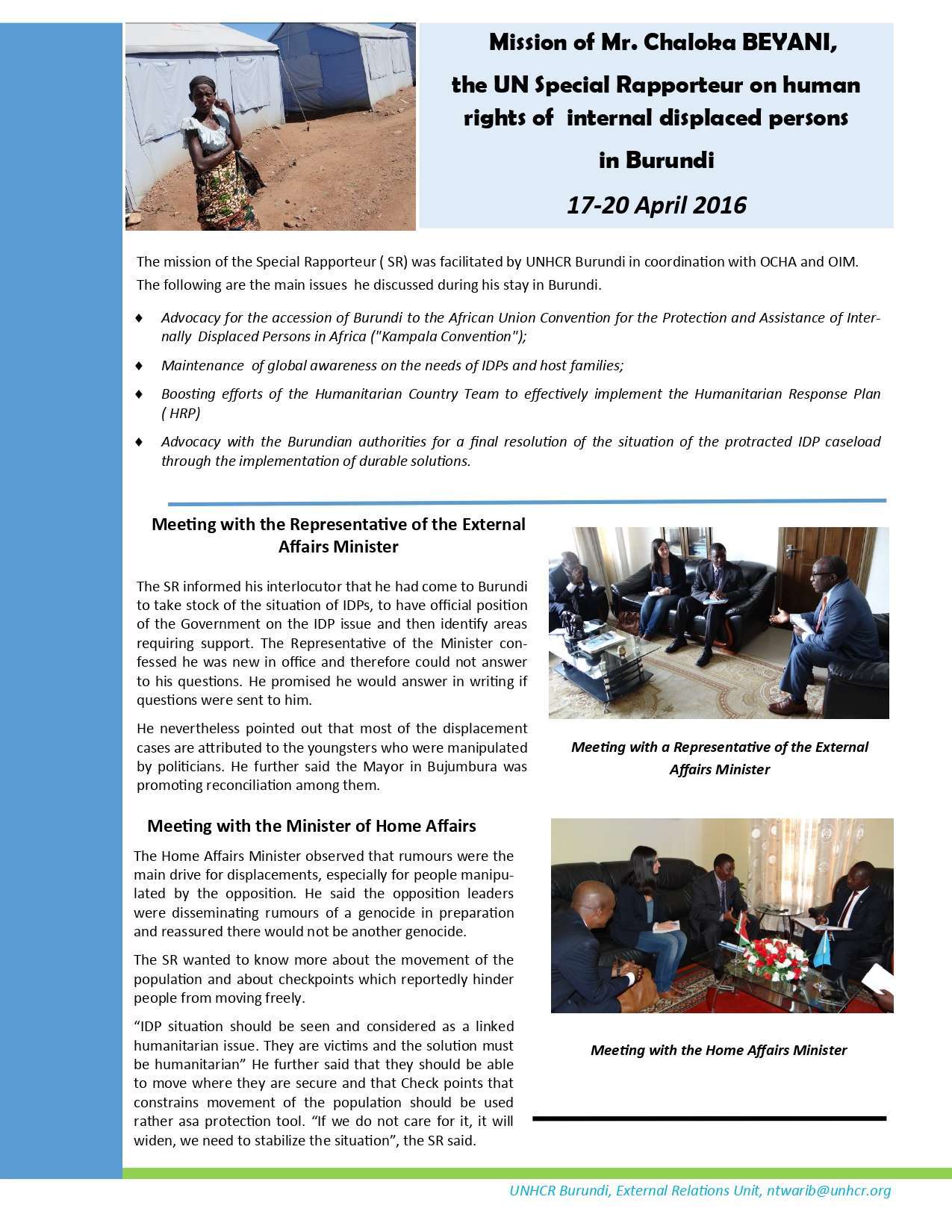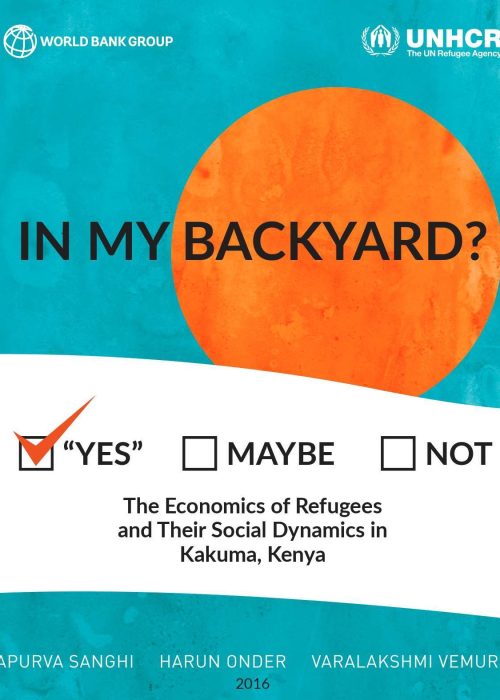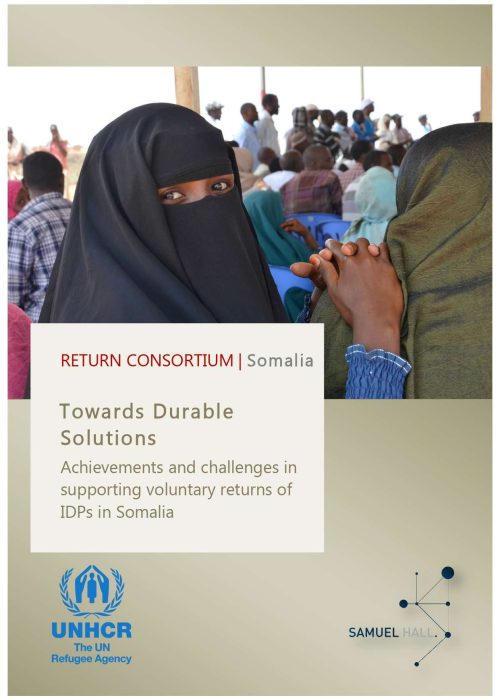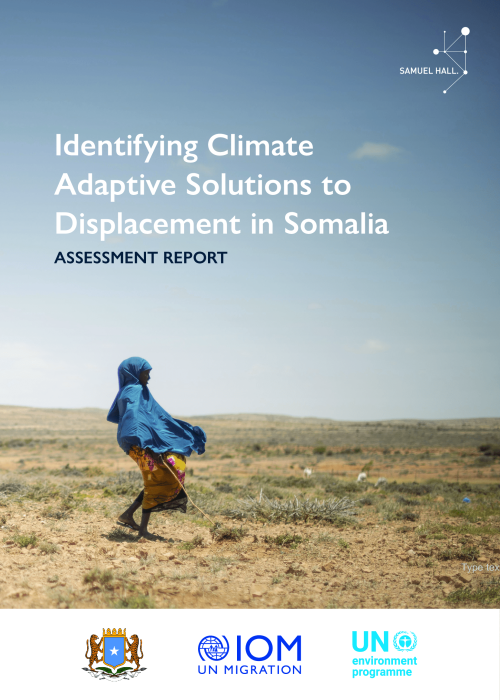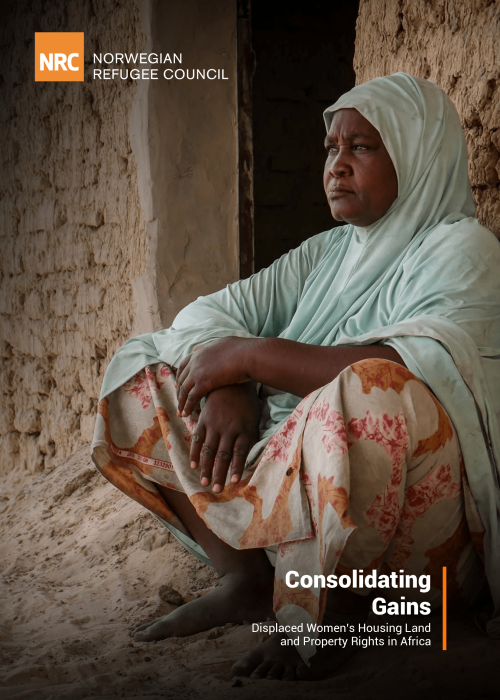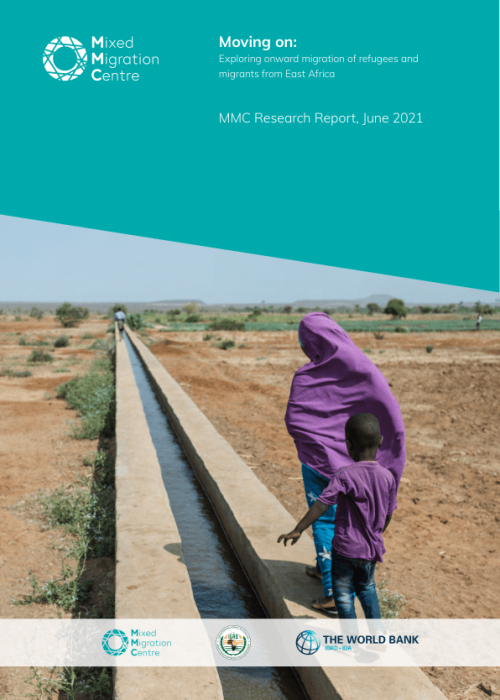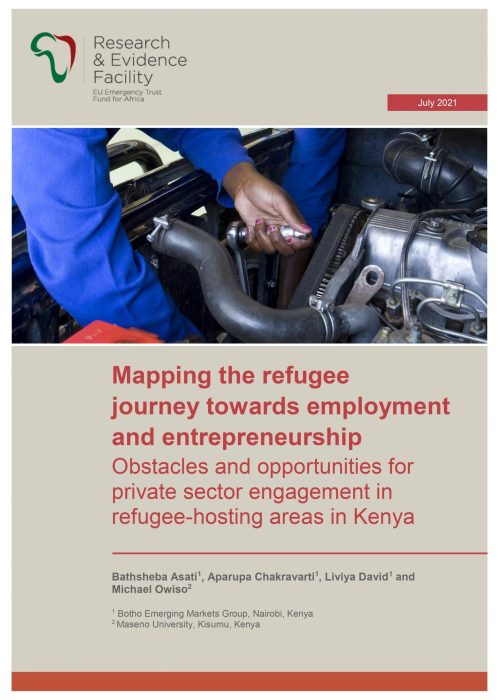During his visit to Burundi in April 2016, the UN Special Rapporteur on the human rights of internally displaced persons (IDPs), Mr. Chaloka Beyani, discussed various issues related to the IDP situation in the country. He advocated for Burundi’s accession to the African Union Convention for the Protection and Assistance of Internally Displaced Persons in Africa (Kampala Convention) and emphasized the need for global awareness on the needs of IDPs and host families. The Special Rapporteur also encouraged the Burundian authorities to find durable solutions for the protracted IDP caseload and to implement the Humanitarian Response Plan effectively.
During his meetings with government officials, the Special Rapporteur raised concerns about the displacement of people, particularly the youth, due to political manipulation and rumors of a genocide. He also discussed the challenges faced by IDPs, such as restricted movement due to checkpoints and lack of access to information and education. The Special Rapporteur emphasized the importance of addressing the IDP situation as a humanitarian issue and urged the government to adopt an IDP national law and the Kampala Convention.
The Special Rapporteur also met with the Humanitarian Country Team and discussed the current IDP situation, including the culture of impunity, protection of vulnerable groups, and funding challenges. He recommended the activation of the cluster system, capacity building of humanitarian actors, and reduction of IDP dependency on assistance through livelihood activities.
Overall, the visit highlighted the need for a comprehensive approach to addressing the IDP situation in Burundi, including legal frameworks, protection measures, and durable solutions.
